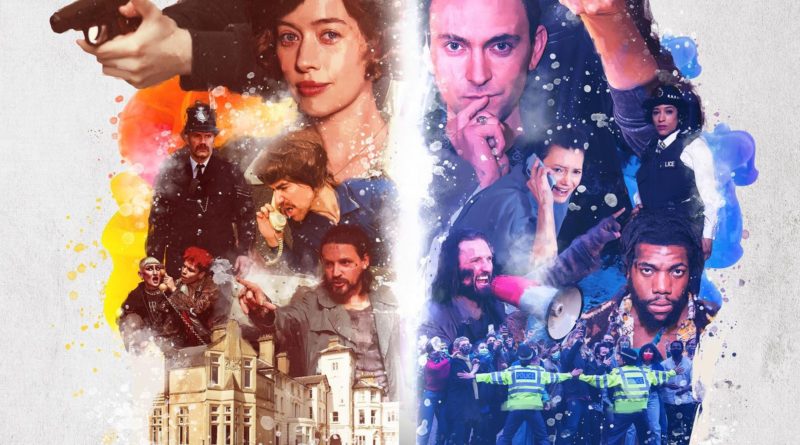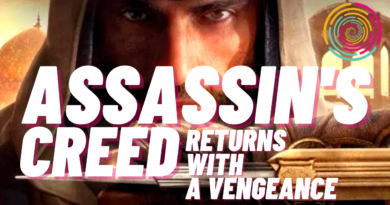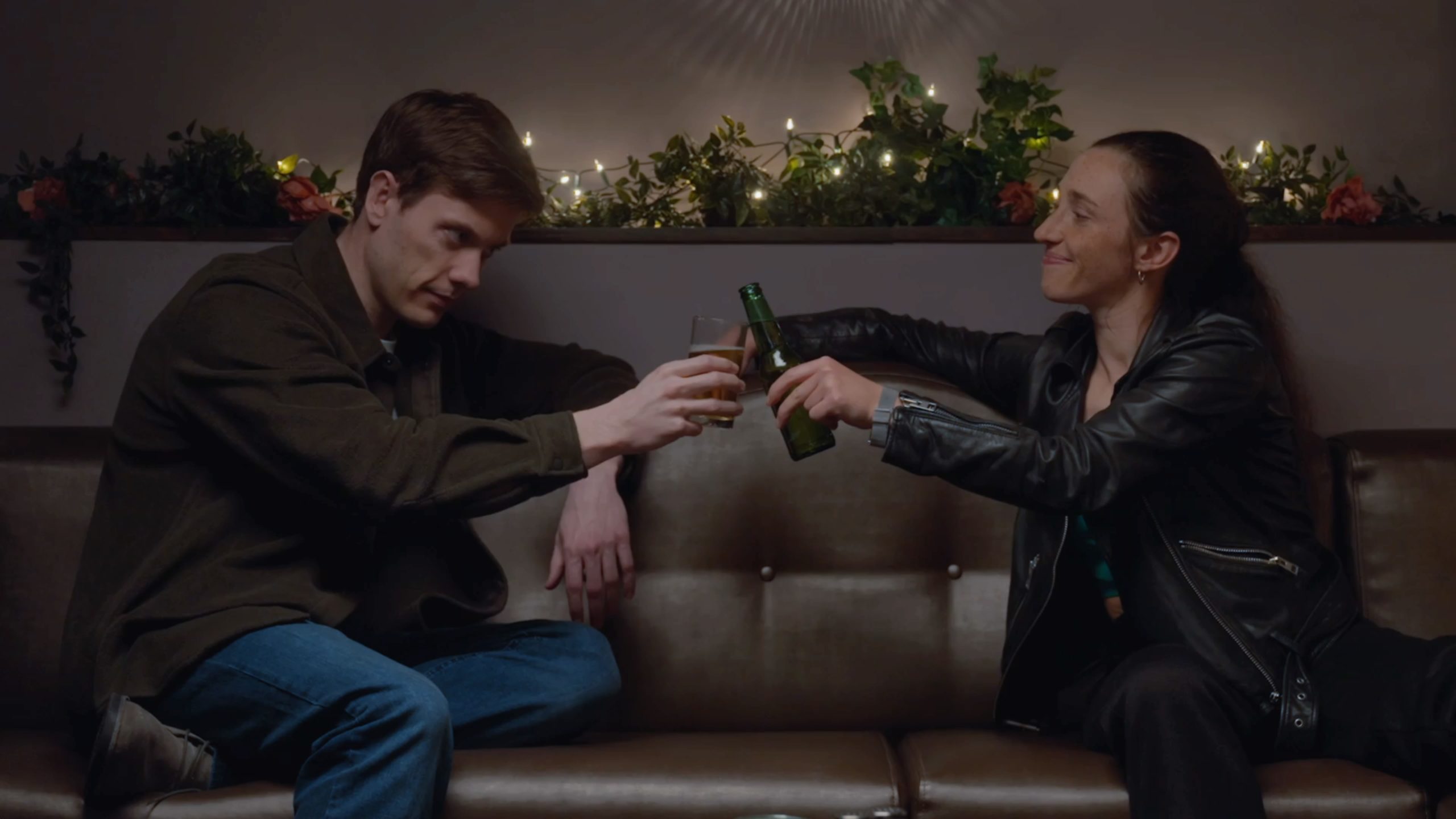The Gallery Review (PS4) – An FMV Art Attack
A tense FMV game/interactive movie with an interesting take on art and the state of Britain, The Gallery is yet another success for Paul Raschid. The Finger Guns Review.
Paul Raschid’s finger prints have been all over the FMV genre for the past few years. He directed the CBFF winning ‘The Complex‘, wrote & directed the excellent ‘Five Dates‘ and is helming the FMV adaption of Ian Livingstone’s multi-million selling classic gamebook in ‘Deathtrap Dungeon: The Golden Room‘. The FMV genre is flourishing and alongside a few other trailblazers, Raschid is helping it reach new heights by creating stories with interesting narratives and FMV footage with high production values. Both of those points are true of Raschid’s latest title ‘The Gallery’.
In The Gallery, you control the choices of an art curator who finds themselves held hostage by a mysterious intruder. On the eve of the most important day in their gallery’s history, when they’ll be displaying a piece that’s bound to draw a crowd, they find yourself confined to a chair thanks to the threat of a bomb. Can they make it through a turbulent night to survive till morning? Or will they become the footnote in their captors political message? That’s up to you, the player, to influence as you guide them down a branching narrative.
And interestingly enough, you’ll have to do it twice.
“Art is coming face to face with yourself” – Jackson Pollock
I doubt that Paul Raschid had that famous Pollock saying to mind when writing and planning The Gallery but it’s apt nonetheless. You see, The Gallery is actually made up of two FMV games. The synopsis above is true of both of them. You play as an art curator who’s being held hostage. The difference is the two stories in this title are set in different time periods and have different protagonists.
The first version of The Gallery is set in 1981. It’s Thatcher’s Britain and the country is divided. There’s civil unrest and protesting. Here you guide the path of independent woman Morgan Haynes (played by Anna Popplewell, who you will recognise from the Narnia movies). In an attempt to draw more potential customers to her portrait gallery, she’s arranged to display a popular portrait of the Prime Minister in her showroom. The piece was painted by Morgan’s secret lover and celebrated artist Nicki Dryden-Smith (played by Rebecca Root) who has delivered the painting a day earlier than anticipated. As Morgan is about to leave for the evening, she discovers she’s not alone. A suspicious man going by the name Dorian (played by George Blagden, known best for Vikings or Versailles) has managed to get into the gallery. Tricking Morgan to sit on a bomb-rigged seat, Dorian sets out to grill the gallery owner over art, politics, the Prime Ministers portrait and her own history, all while painting a portrait of her. How this night pans out is down to the decisions of the player.
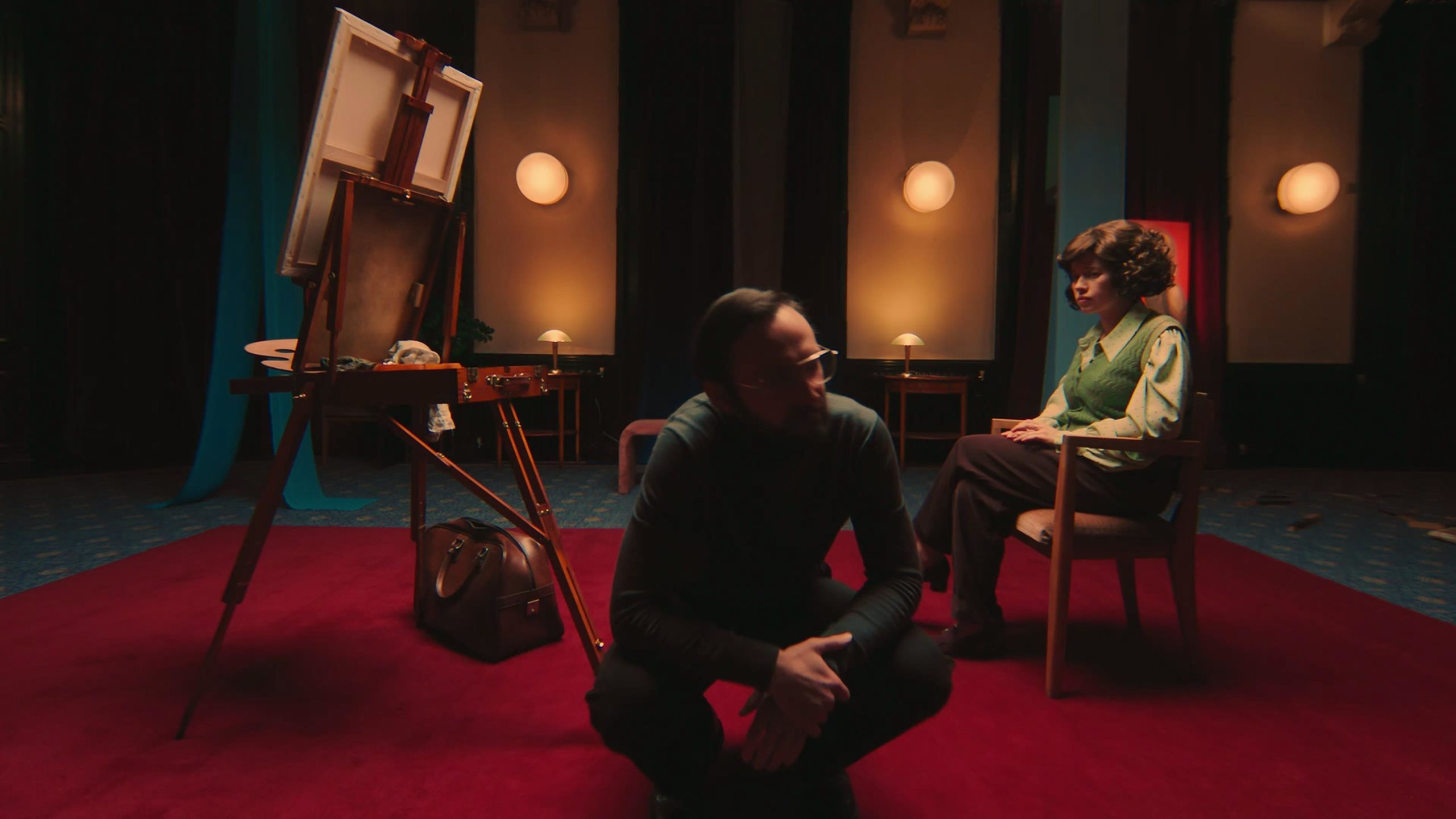
Now bear with me because this is where things get interesting and a touch peculiar.
The second version of The Gallery is set in 2021. It’s Brexit Britain and the country is divided. There’s an epidemic, civil unrest and protesting. Here you guide the path of the unassuming man Morgan Haynes (played by George Blagden, known best for Vikings or Versailles). In an attempt to draw more potential customers to his portrait gallery, he has arranged to display a popular portrait of a social media icon in his showroom. The piece was painted by Morgan’s secret lover and celebrated artist Nicki Dryden-Smith (played by Rebecca Root) who has delivered the painting a day earlier than anticipated. As Morgan is about to leave for the evening, he discovers he’s not alone. A suspicious woman going by the name Dorian (played by Anna Popplewell, who you will recognise from the Narnia movies) has managed to get into the gallery. Tricking Morgan to sit on a bomb-rigged seat, Dorian sets out to grill the gallery owner over art, politics, the social media icons’ portrait and his own history, all while painting a portrait of him. How this night pans out is down to the decisions of the player.
Yeah, you read that right. The two stories follow the same premise but the lead actors switch roles and become the antagonist in each other’s stories. It’s quirky, but it works.
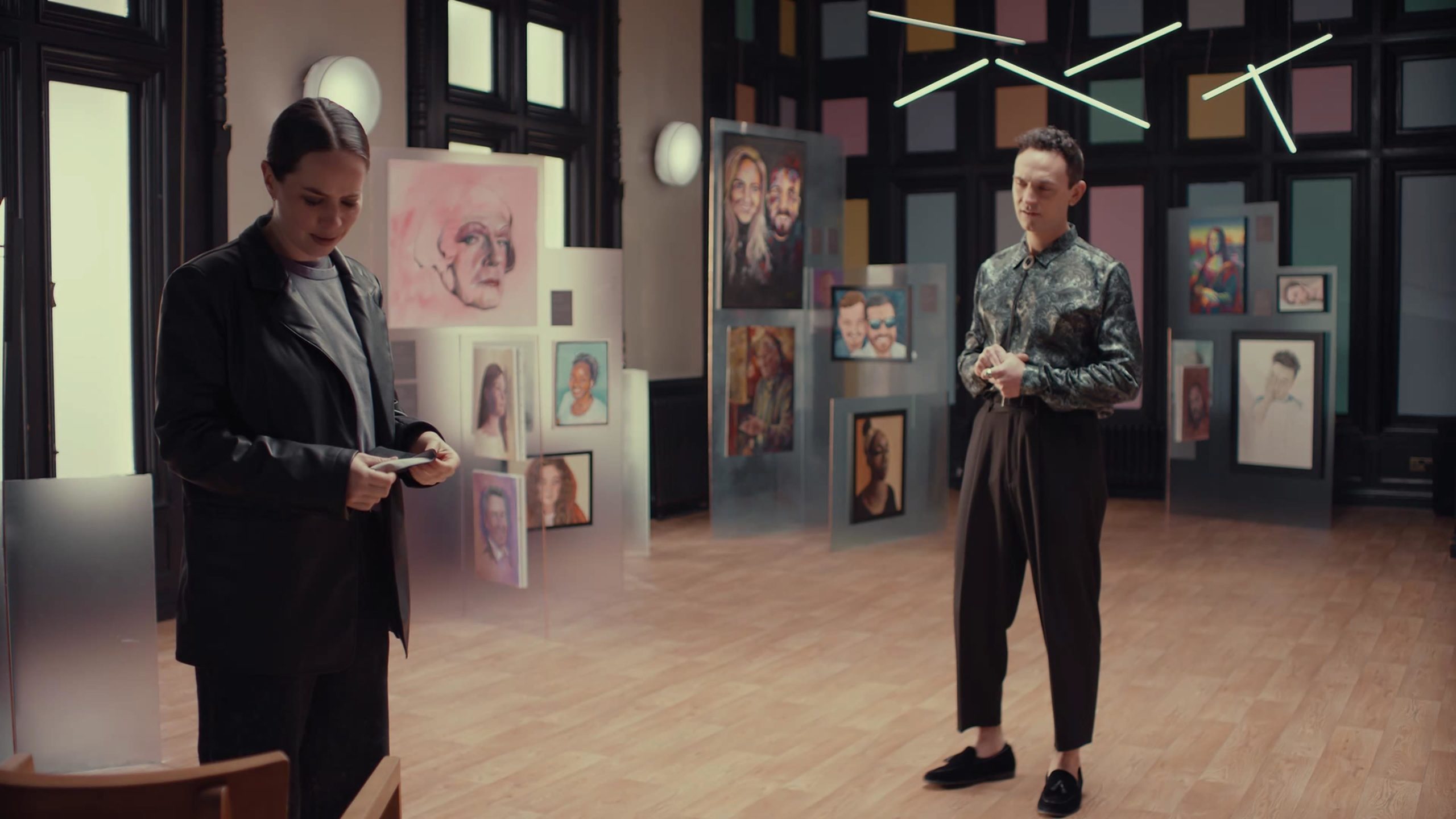
The more things change…
This narrative mirroring between the 1981 and 2021 versions of this story is a smart observation by Raschid. Despite the 40 years that separate the two parallel stories, the same challenges to our culture remain. While much of out society has changed, circumstances in Britain meant that many of the talking points are the same as they were in 1981, four decades later. The fact that the two lead actors essentially swap roles in the same story here is a poignant reflection of that.
The Gallery doesn’t shy away from the politically volatile nature of modern day and 1980’s Britain. It carries the vibe of both periods incredibly well and represents their own unique challenges. For all the symmetry of the periods and the storylines detailed above, they both have their own day to day tests that are at the fore. For example, the abuse of social media and the power of influencers becomes a powerful theme in some of the 2021 narrative branches in The Gallery.
Despite the conversations between Dorian and Morgan touching on topics of racial tension, gender, divisive political leaders and the importance of art during these times of uncertainty, The Gallery does an excellent job of avoiding becoming a preachy sermon on the matters. Instead, it instead challenges the player to recognise these topics as the obstacles to society they are. You’ll have to make decisions on these topics but this can be as a ploy to appease Dorian. The game is highly replayable to allow you to explore all of these choices.
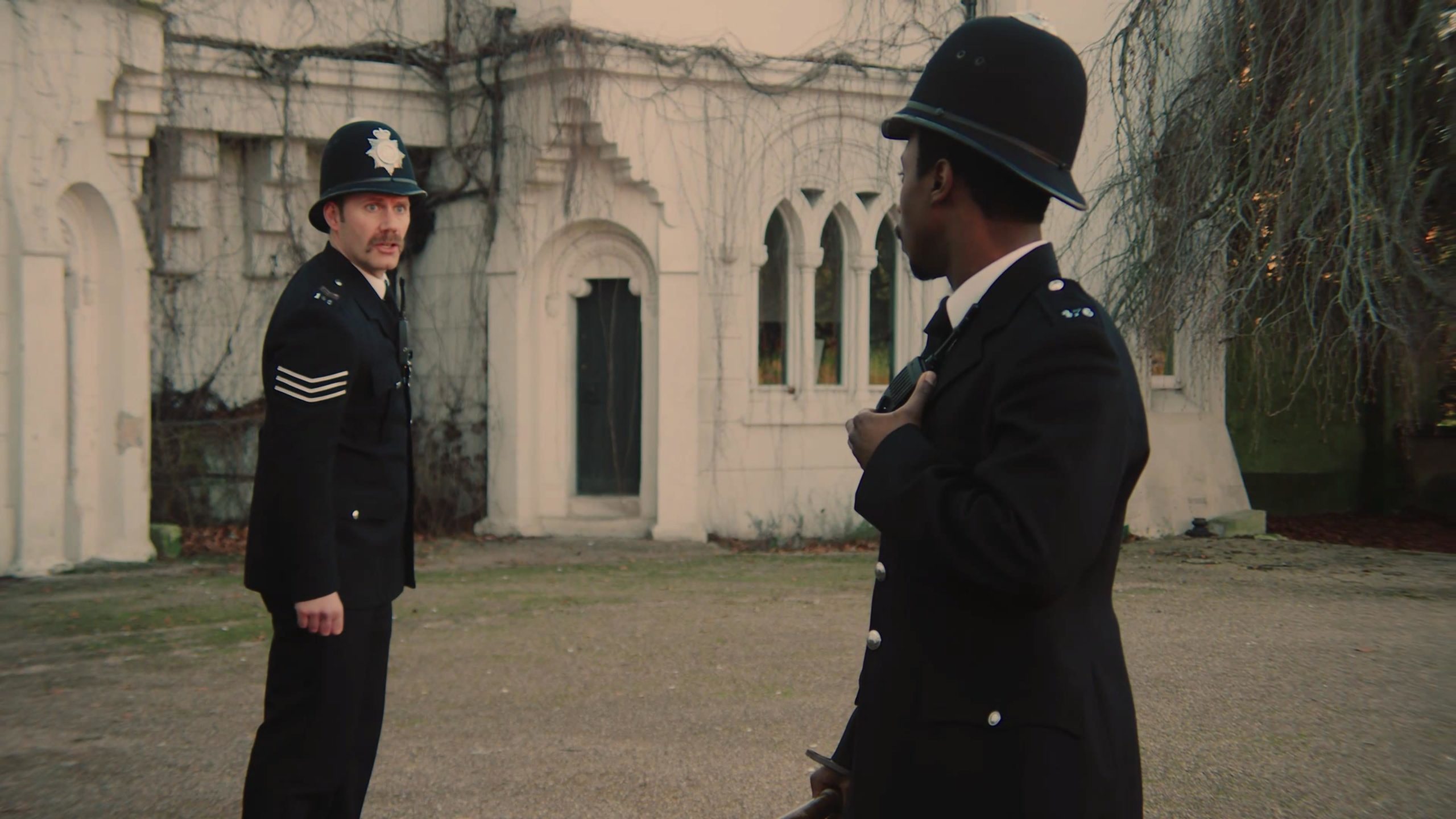
I’m not in control of my muse…
The real star of The Gallery is the dynamic between Dorian and Morgan in both versions of this story. In both stories, Dorian is essentially forcing Morgan to evaluate their life. They question whether the means in which they obtain the popular portrait, which may or may not save the art gallery, was obtained fairly. Dorian questions Morgan’s relationships with family, friends and clients. The responses to these probes, decided in almost universally binary fashion between two answers, shapes the relationship between Dorian and Morgan. If you appease Dorian, either intentionally or unintentionally, then they’ll grow closer. Disagree with Dorian and their relationship will deteriorate. This is tracked at all times by a handy gauge in the pause menu.
The state of the relationship between Dorian and Morgan will be decisive during certain junctures of the game. If Dorian hates Morgan, they’re less likely to assist or forgive Morgan, for example. There’s more than 20 endings to find in The Gallery across the two timelines. The balance of the relationship between the two leads is the lynch pin that sways the whole process.
The ending’s aren’t the only content that will be different depending on your choices either. You’ll see some of the same scenes in every play through, even some of the same lines of dialogue in the two time lines, but the journey can take some real twists on the way to its conclusion. There are some surprising complementary narrative threads that are just as shocking as the main one here. Some supporting characters might seem just like simple scene setting but in certain circumstances, down particular story branches, they can offer some of The Gallery’s most shocking moments.
For example, reaching out for help for those near to the art gallery can have unintended or deadly consequences. Similarly, how you treat some of the supporting characters can unintentionally harm others. Each choice has weight in The Gallery. Even when it’s not immediate.
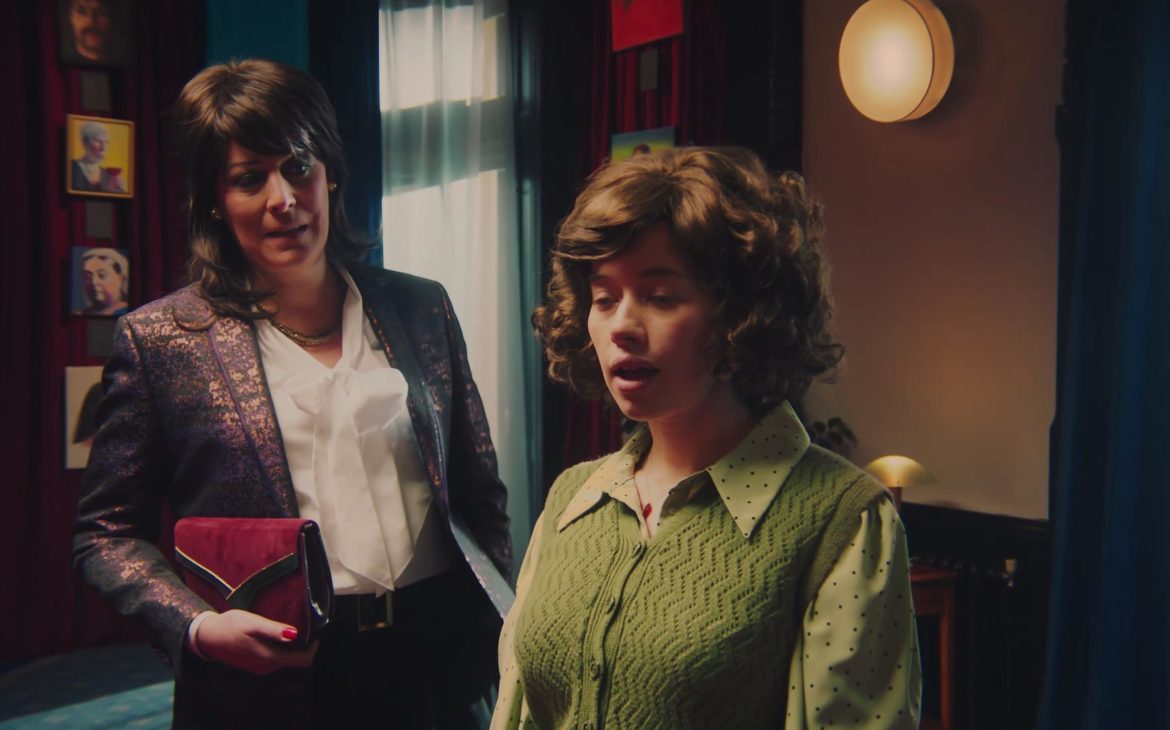
There’s a hand full of the 20 or so narrative endings that felt a little unsatisfying however. One in particular stood out in the 1981 version of the game involving Morgan’s brother Jamie. Now, Jamie’s having a particularly rough night too but, without spoiling it entirely, it’s almost entirely self inflicted. Depending on your interactions on the phone with Jamie throughout the night, the coming morning can have dire consequences for Morgan’s sibling which can be quite impactful. So, naively perhaps, I expected the reverse conclusion to be just as moving. Unfortunately, it falls flat. There’s a few endings in the game like this that feel like they needed to be a few more minutes of footage just to put a bow on everything. For the most part though, the endings and reveals are well handled and delivered.
The Time, The Place, The Players
The Gallery is brought together by some top quality acting. George Blagden brings a menacing, threatening energy to his portrayal of Dorian that’s quite something behold. There’s an air of Dennis Nilsen in his performance at times which is quite unsettling. Anna Popplewell’s Dorian is far more restrained but carries a cool, uncaring edge to it. Both actors bring a vulnerability to their portrayal of Morgan but Popplewell really shines as the would-be victim and strong independent woman. She’s easy to care for and cheer on.
There’s far less of a physical imposition when Blagden plays Morgan however. In the 2021 story, Dorian just feels less imposing. There are moments of creepiness in the 1981 story which are absent from the modern day version, simply because of the size dynamic. Popplewell instead comes off as calculating, which she does well, but feels less threatening than Blagden’s version. Maybe that’s intentional, but it does take a little of the tension out of the story.
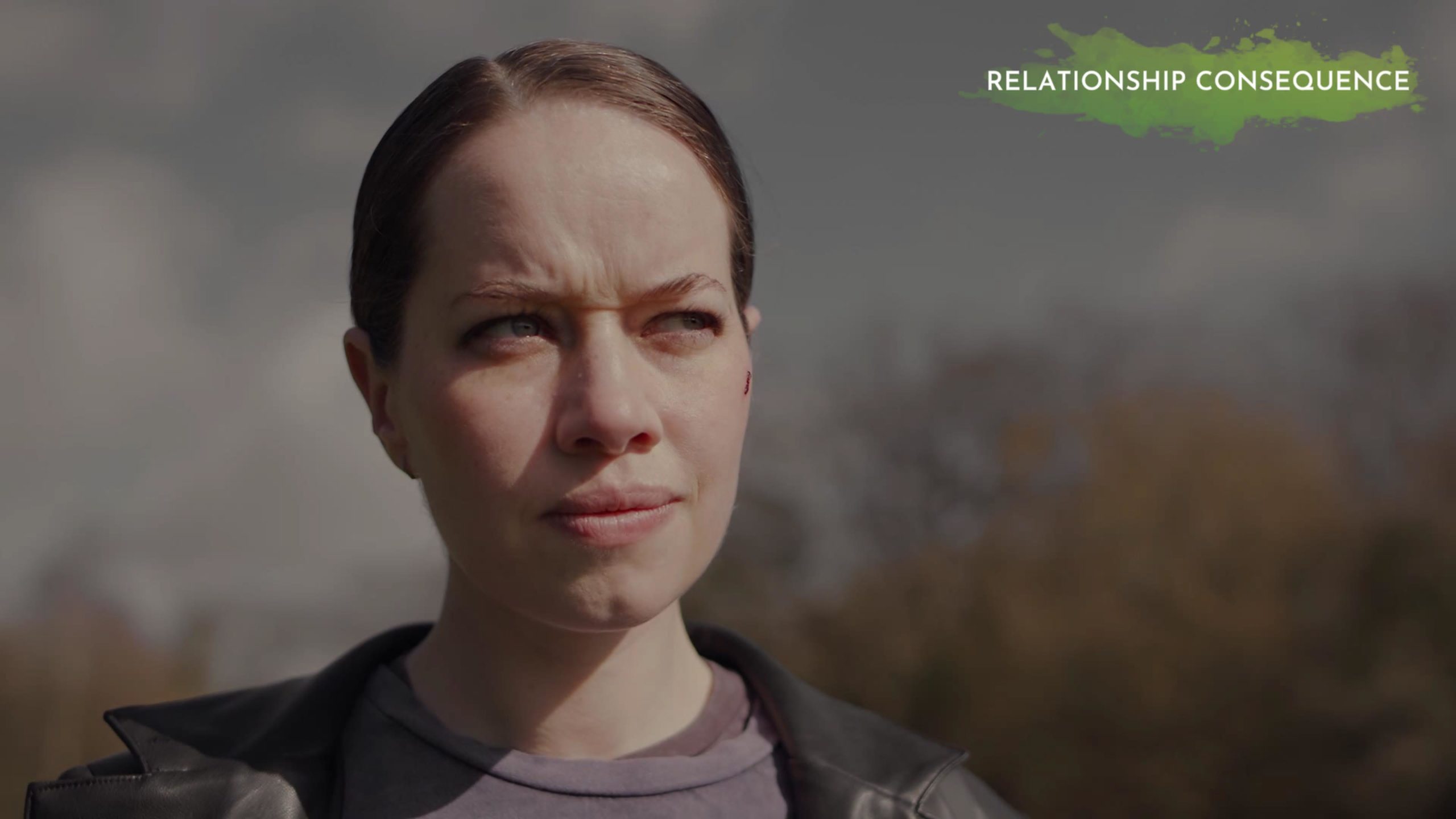
The supporting cast all play their parts well, coupled with great casting and some savvy cinema tricks. A number of the actors only get a few minutes on screen but they really maximise their moments. Jason Harvey plays the convincing “man with a message who will be heard, whether you like it or not” character Megaphone Mel in both versions of The Gallery. Rebecca Root brings a domineering confidence and style to her part as Nicky. Fehinti Balogun is another stand out from the rest of the cast who has a surprising amount of range that’s demonstrated in different narrative branches.
To see all of these narrative branches, The Gallery employs the current genre standard of allowing you to skip scenes you’ve already seen. This is true to the description which means you’ll be able to skip repetitive scenes you’ve already seen, even if you’ve made a new choice earlier in the game. Getting to those many endings is far more palatable when you can reduce the 1.5 hour play through of the game down to 5-10 minutes.
I have to applaud the amount of authenticity that The Gallery has delivered in its sets, clothing and visuals too. The hair and outfits in both timelines are nailed on (My Dad used to dress exactly like Blagden’s Dorian back in the 80’s, worryingly), as are the sets, complete with the rotary phone for the 1981 version. To lend the realism to the 2021 thread in The Gallery, there’s a lot of use of facemasks and hand wash. It’s quite something to see this particular portion of our history captured in an FMV game that’ll hopefully endure for years to come. If you’re a fan of Paul’s other work, or the current crop of FMV games available on consoles, then I highly recommend you pick this up.
Yet another success for Paul Raschid, The Gallery is a unique, poignant and often powerful FMV game set across both 1981 and 2021. With an engaging branching narrative, top class acting talent and quality of life tools to keep you playing, it’s a high quality entry into the genre. There are a few endings that fall flat, but when there are so many endings to unlock, this feels negligible.

The Gallery is available now on PS4 (review platform), Nintendo Switch, PC via Steam, iOS & Android with Xbox console versions following later.
Developer: Paul Raschid / PRM / Aviary Studios
Publisher: Aviary Studios
Disclaimer: In order to complete this review, we were provided with a promotional code from the publisher. For our full review policy, please go here.
If you enjoyed this article or any more of our content, please consider our Patreon.
Make sure to follow Finger Guns on our social channels. Twitter, Facebook, Twitch, Spotify or Apple Podcasts – to keep up to date on our news, reviews and features.
